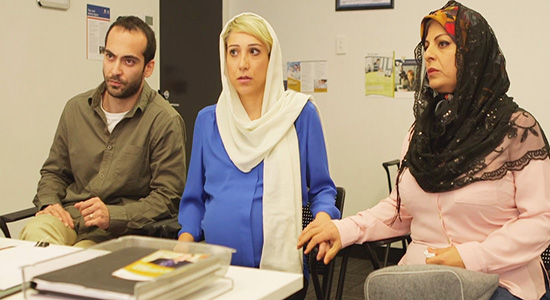
The Communication Skills online resource is a self-directed resource covering communication skills and frameworks to help you work through everyday conversations you will have as a physician.
*The estimated completion time is an approximate guide and does not account for time spent on optional additional readings and activities.
Note: Access to this resource is currently available for College members only. Please ensure that you are logging in using your user ID and password. If you are unable to access the resource, or don't have access and feel that you should, please contact digital.learning@racp.edu.au
If you would like to join RACP as your CPD home, please contact membersupport@racp.edu.au
Tags: Category 1 Educational activities Key communication skills Active listening Listening Body Language Emotions Psychosocial Speaking Talking Handover Breaking bad news Adverse event Non-verbal communication Social skills Language Health literacy Communication frameworks ISBAR Mnemonic Patient transfer Discharge Emergency Multidisciplinary teams NURSE Respect Support Empathy SPIKES Consultation Gathering information Patient cues Ask tell ask Tell me more Questioning Conversation Providing information Disclosure Conflict Difficult patients Aggressive Angry Fearful Defensive Resentment De-escalate De-escalation Discussion Interpreter Interpretation
Learning outcomes
• Outline the steps needed to prepare for a communication task.• Discuss the importance of active listening and non verbal communication.
• Apply the SPIKES and NURSE frameworks for discussing serious news and responding to emotion to your own practice.
• Discuss key considerations when providing information to a patient or family, including the use of appropriate language.
• Apply the ISBAR framework to your own setting.
Content
Video scenarios
• Part 1 – Handover• Part 2 – Discussing serious news
• Part 3 – The adverse event
• Part 4 – Referral to palliative care
Skills toolbox
• Key communication skills – active listening, non-verbal communication• Communication frameworks – ISBAR, NURSE, SPIKES
• Gathering information – patient cues, approaches to questioning
• Providing information – managing challenging interactions with patients, use of interpreters
| Authors: | Dr Robyn Thomas FRACGP FAChPM Dr Karen Detering FRACP Dr Sadie Dunn FRACP FAChPM MPallcare Dr Katrina Gibson Dr Beres Joyner FRACGP FAFPHM MMedHum Dr Laverne Lok FRACP MPH Dr Megan Phelps FRACP MMedEd Dr Ranjana Srivastava FRACP Dr Raj Tota FRACP Dr Amy Waters FRACP FAChPM MMEd |
||
| Peer reviewers: | Dr Josephine Clayton FRACP FAChPM Dr Derek Eng FRACGP FAChPM Dr Ian Kennedy FRACP Dr Joseph Lee FRACP Dr David Lester-Smith FRACP Dr Sarah Thompson FAChPM |
||
| Version: | 1 | ||
| Release Date: | April, 2016 | Revised Date: | N/A |

